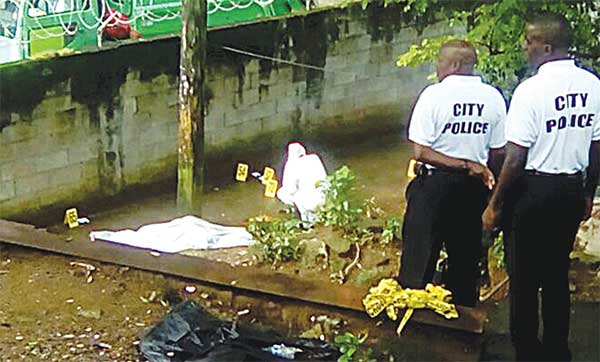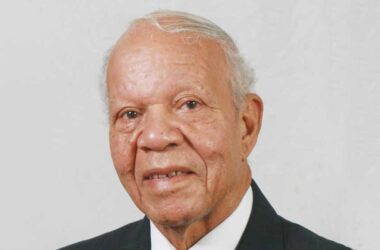TWO letters to the Editor (carried in this issue) refer to the same subject: crime and politics. Truth is, however, no government, political party or police force — and certainly no individual — can take responsibility or be blamed for any movement in the national crime rate. No government here can be directly accused of causing the nation’s crimes. But it is always the responsibility of every government to take praise or responsibility for the national crime rate, at any time, as National Security is a government responsibility.
The press reports crime, but can it be blamed for them? Governments and ruling parties will naturally want to de-emphasise risng crime under their watch and will accuse media houses of reporting ‘Bad News’. But bad as it is, it’s not Fake News. Media houses will choose how they report, but as long as they report accurately, they cannot — and should not — be accused of being anti-government, anti-ruling party or anti-national.
The one fact that everyone here agrees to is that the crime rate is not good. How bad it is however, will most likely be judged by the person answering. (Unfortunately, this is what happens in any country, like ours, where major political parties interpret the crime rate according to how many people were killed under their watch.)
The one factor that eludes all, regretfully, is what to do about the disturbing crime rate. The Police Commissioner believes more force is necessary, the churches believe prayers are needed and relatives of victims believe more vigils will help. Politicians, on the other hand, blame each other over the slow justice system, some blame others for creating obstacles, while the Minister of National Security and Justice urges citizens to respect life and preserve peace.
In the meantime, even the police commissioner is admitting that the criminals seem to have taken the law into their own hands.
Surely, the crime situation requires more than personal attacks from political platforms. There needs to be more discussion in the search for solutions.
For example, one uncomfortable question worth asking is whether and/or to what extent the commuting of the death sentence – the unofficial banning of the death penalty – may or may not have an influence on decisions by individuals to commit or attempt murder. (See story on Page 2)
Uncomfortable it may be, but the decision by successive governments to bow to the wishes of the British (and other European governments) to abolish the death penalty (that they first put on our law books) has automatically resulted in a phenomenal increase in the number of persons – particularly youth — on Death Row in those states across the Caribbean where the gallows have been shut and executioners forcibly retired.
Should hanging be reintroduced? Or should citizens be better informed (if not educated) as to why hanging is today deemed barbaric, inhuman and therefore no longer deemed just.
Following the murders of a priest and a nun in the Catholic Church on the last day of the last century, the church’s hierarchy elected to oppose the death penalty, much to the chagrin of those members of the flock who still believe in ‘an eye for an eye’ and feel they’re now being asked to also accept the need to ‘turn the other cheek’.
The questions are endless, but the necessary answers must be sought – and found. Rain does not fall on one man’s house, nor does crime only affect victims. Crime is a national problem and should not be politicized because the two just don’t mix.
Every government’s every effort to fight crime must be supported by all, regardless of whether one supports the ruling party of the day, or not. And it’s equally the sacred duty of every government – and ruling party – to accept its responsibility for the state of crime under its watch.
It’s just the right, normal and natural thing to do.















